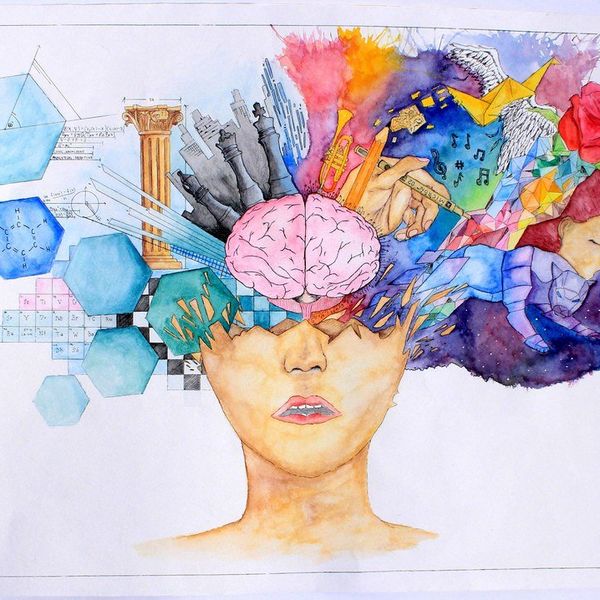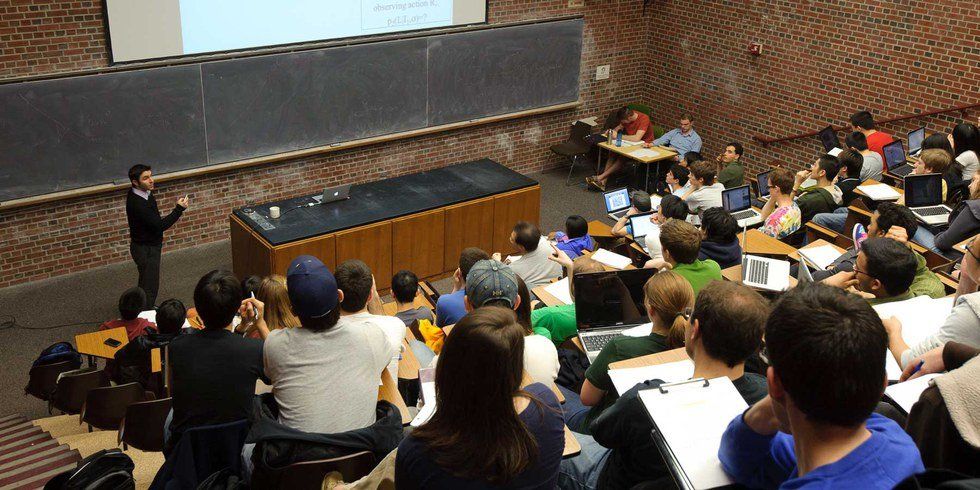Things are not going so great for pretty much anyone right now. Every day, a bigger tragedy appears in the news than the one the day before. We're in a rut, to put it mildly, a rut filled with horror, violence, racism and hatred. The media has taken up the habit of skewing every story to support one view or another, and unbiased facts are hard to come by. Gaining perspective is difficult when fact and fiction are only loosely separated. This makes incorporating current events into classes, particularly at a high school or college level, fairly difficult. Teachers deserve the opportunity to discuss social issues, as do students. The challenge is incorporating these events into classes in a fair, unbiased matter while staying accurate. This article will discuss different ideas of incorporating current events into classrooms, from the perspective of a student and future teacher, as well as the uses of current events in promoting valuable skills.
While taking a history class as a sophomore, our teacher had us write monthly articles on a specific country, to help us stay focused on current events worldwide. The assignment was more than just finding articles. We were also required to write papers including a summary of the event, relevant background information as well as history, and at least one connection to U.S. society. More than anything else, this assignment promoted research skills and enforced the idea that there is more to each story than what is reported. Its a lesson that I have kept in mind ever since. While staying updated on current events is important, understanding them is more important, and far more difficult. The history behind each tragedy is rarely utilized by reporters in the media, and often, it goes unnoticed by viewers. Incorporating current events into classrooms creates an opportunity for teachers to show students how to make connections between the past and the present, connections that are essential when looking at the issues of modern society.
However, there are most certainly wrong ways to incorporate current events into classrooms. For example, when only one side of an argument is discussed, it creates a lack of understanding rather than a better understanding. Students don't learn to appreciate the language the media uses to enforce a single side of the argument; rhetoric is important when displaying ideas, and when only one argument is discussed, students are not exposed to the various types of rhetoric used by the media. Students should have the opportunity to explore various beliefs, to promote open-mindedness as well as an appreciation for rhetoric. Unless it is an overarching assignment, teachers should also be careful about which events they choose to incorporate.
According to an article by The Chronicle of Higher Education, there are a few questions that teachers, particularly college professors should ask themselves before selecting events to discuss in class. Some examples include: are you familiar enough with scholarly sources to contextualize the event and create a better understanding, and if you introduce a topic unknown to students are you prepared to support it with knowledge that will better the understanding of the students. The article from Chronicle deals specifically with incorporating controversial topics into classrooms.
While incorporating controversial topics into classes is important, students would sometimes benefit more with a project that teaches research skills and shows students how to delve deeper into topics and understand the history behind them. In a society in which its difficult to rely even on our media for a full understanding of various situations, teaching students the skills to research and understand on their own is more valuable than surface discussions about a specific event. Each teacher should make an individual decision on how and what topics are discussed in their class, particularly with more controversial subjects that could create conflicts in the classrooms. Nevertheless, incorporating current events into classes, in any manner of the teachers' choosing, should be an essential part of a classroom experience.





















